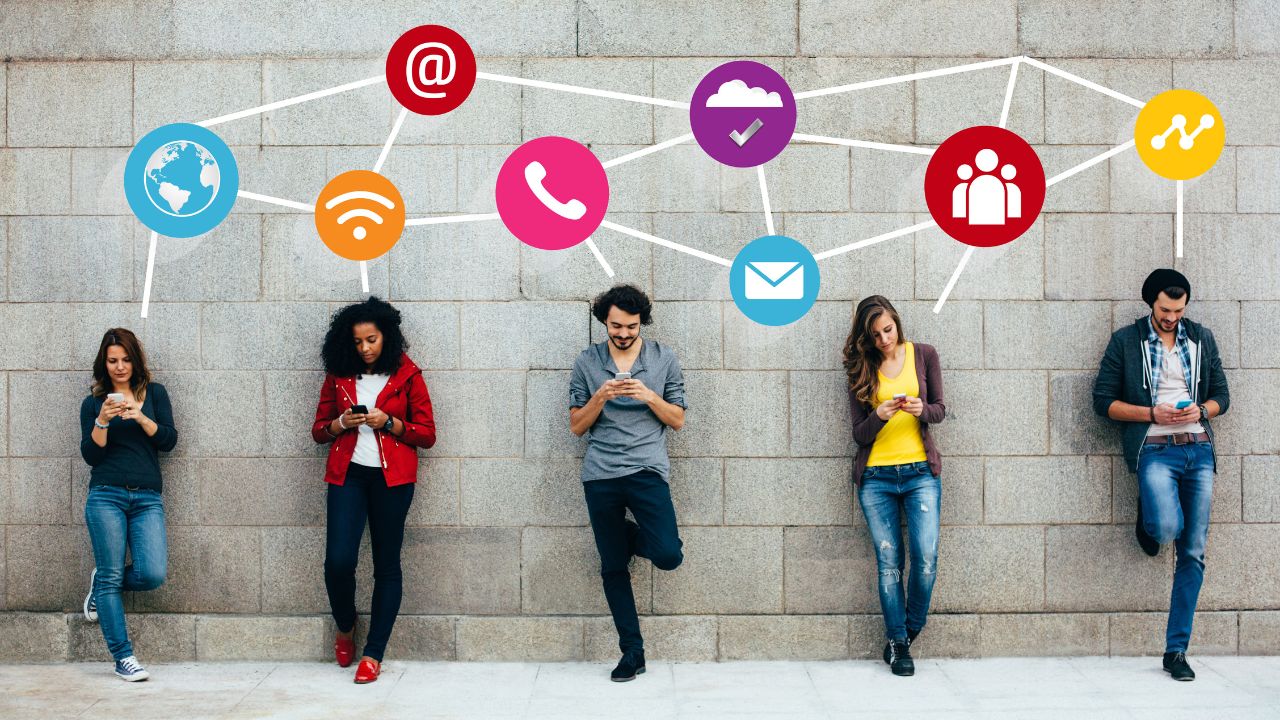In the age of technology, social media platforms have become integral to our daily lives, providing avenues for connection, information sharing, and self-expression. However, the pervasive use of social media is not without consequences, and the impact on mental health has come under scrutiny.
This article delves into the complex relationship between social media and mental well-being, exploring both the positive and negative effects and providing guidance on navigating the digital world for a healthier online experience.
Table of Contents
The Positive Side: Connection and Support:
Social media platforms facilitate global connectivity, allowing individuals to stay in touch with friends, family, and communities regardless of geographical distances. For many, these platforms provide a sense of connection and support, especially in times of isolation or when facing life challenges.
Online communities centered around shared interests or experiences can be sources of encouragement and understanding, fostering a sense of belonging.
Information Sharing and Awareness:
Social media serves as a powerful tool for information dissemination and awareness campaigns. Platforms enable the rapid spread of information on important issues, breaking news, and public health initiatives.
This accessibility enhances knowledge-sharing, raises awareness about various topics, and empowers individuals to engage with societal matters, contributing to a more informed and connected global community.
Self-Expression and Creativity:
Social media platforms provide users with the opportunity to express themselves creatively, share their talents, and showcase their interests. From visual arts to written content, individuals can use these platforms as a digital canvas for self-expression. This creative outlet can contribute to a sense of fulfillment and personal accomplishment, fostering a positive aspect of digital self-identity.
Impact on Mental Health: The Dark Side:
Despite the positive aspects, social media’s impact on mental health is a subject of growing concern. Research suggests that excessive use of social media is associated with increased levels of anxiety, depression, and feelings of loneliness. Factors such as social comparison, cyberbullying, and the curated nature of online content contribute to negative mental health outcomes.
Social Comparison and Envy:
One of the significant challenges posed by social media is the tendency for users to engage in social comparison. The curated and often idealized representations of others’ lives can lead to feelings of inadequacy, envy, and low self-esteem. The constant exposure to carefully selected highlights of others’ lives may create unrealistic expectations and contribute to a distorted sense of self-worth.
Cyberbullying and Online Harassment:
The digital world is not immune to the challenges of interpersonal relationships, and social media platforms can become breeding grounds for cyberbullying and online harassment. The anonymity provided by these platforms sometimes emboldens individuals to engage in harmful behaviors, leading to adverse mental health effects for victims.
Fear of Missing Out (FOMO):
Social media can intensify the “Fear of Missing Out” (FOMO) phenomenon, where individuals feel anxious or inadequate when perceiving that others are participating in events or activities from which they are excluded. This fear can lead to increased stress and negatively impact mental well-being.
Strategies for Navigating the Digital World:
a. Mindful Consumption: Practice mindful consumption of social media content. Be aware of your emotional responses and limit exposure to content that triggers negative feelings.
b. Set Boundaries: Establish time limits for social media use to prevent excessive screen time. Designate specific periods for digital detox to promote real-world connections and relaxation.
c. Curate Your Feed: Choose to follow accounts that inspire, educate, and uplift. Unfollow or mute accounts that contribute to negative emotions or unhealthy comparison.
d. Digital Literacy: Develop digital literacy skills to critically evaluate information online. Be aware of the potential impact of misinformation and disengage from toxic conversations.
e. Prioritize Real-Life Connections: Nurture offline relationships and prioritize face-to-face interactions. Balance your digital and physical social connections for a more holistic social life.
Conclusion:
The impact of social media on mental health is a multifaceted issue that requires a balanced and informed approach. While these platforms offer unprecedented opportunities for connection and self-expression, understanding the potential pitfalls and implementing strategies for healthy digital habits is crucial.
Navigating the digital world with mindfulness, setting boundaries, and fostering genuine connections can help individuals harness the positive aspects of social media while mitigating its potential negative effects on mental well-being. As technology continues to evolve, the importance of developing a healthy relationship with the digital landscape becomes increasingly vital for overall mental health and well-being.
